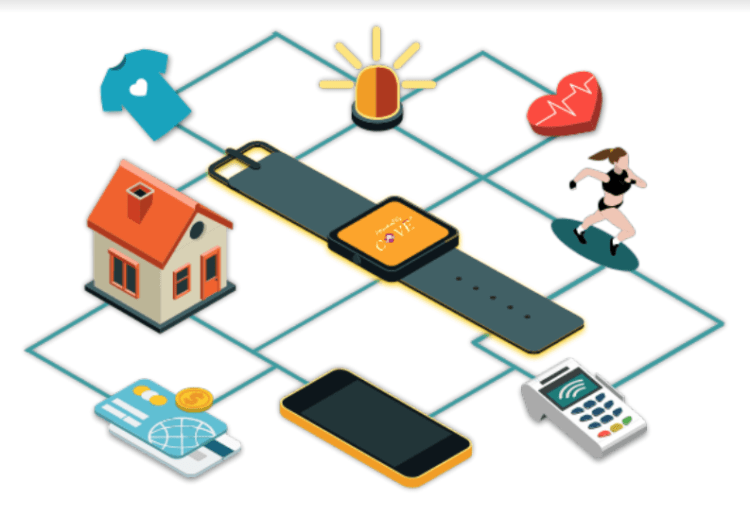A Singapore-based startup offering smart internet of things (IoT) wearables platform for companies to launch smart products has raised $6.2 million in a Series B round.
The latest funding round for KaHa was led by Tembusu ICT Fund, a venture capital investing on software companies in Southeast Asia.
This brings to $10.7 million the total funding for the IoT company, according to Crunchbase. KaHa also received funding from Spring SEEDS Capital and Titan Company in November 2017 for $4.5 million.
KaHa operates Cove, an end-to-end smart IoT wearables platform that allows brands to launch smart products in key verticals including sports and fitness, health and wellness, digital payment, safety, lifestyle and special needs.
Among the products it has helped to bring to market include a smart buckle that can count steps and track activities, sensored equipped t-shirts that capture live heart ratings with ECG facility, and an analog watch with heart rate monitoring with LED Display
KaHa, which in Maori means ‘stay strong,’ was founded and incorporated in Singapore in 2015.
Pawan Gandhi, KaHa founder and CEO, told FutureIoT in an email interview that a highly publicized assault case in India in 2012 was a personal critical point for the founders, compelling them to focus in smart wearables, with safety as a primary driver.
“Our first product was a watch that allows the wearer to stay connected. It can send SOS messages in an emergency and track the wearer even if the watch or the phone has been destroyed,” he said.
“Today, the platform enables partners and customers to incorporate the latest technology without prohibitive financial costs and speed up their go-to-market time for smart products,” he added.
R&D Roadmap
Gandhi said KaHa’s R&D roadmap will focus on health and wellness, digital payments, sports and fitness, and safety, which is a top concern for senior citizens and kids.
“In close collaboration with public and private partners, we are currently developing innovative use cases for smart wearables,” he said.
Its partners across the IoT development value chain include A*STAR SIMTech, Bridgestone, Curtis Australia, MHA Manufacture de Haute Accessoirie Partners, Tex Line and Titan.
According to Gandhi, an example of KaHa’s innovation is its collaboration with sports apparel manufacturer Tex Line and SIMTech.
“Together, we created the first made-in-Singapore Smart Fitness T-shirt. The smart-T, which was tested at one-north Run 2018, monitors live ECG, live heart rate, heart rate variance, V0 2 Max and other health parameters,” he said.
“Currently in development, the second-generation smart-T will be made from conductive yarn that enables the smart module to be placed anywhere on the T-shirt. This will increase flexibility and creativity of the design and also improve convenience for the user. We are targeting the commercial release of the smart-T within the year,” he added.
Another project in the pipeline is on Extravasation, which will be in partnership with A*STAR Institute of Microelectronics (IME).
Gandhi said KaHa is now developing a sensor patch and monitoring system that will be able to detect varying degrees of swelling during infusions.
“Our objective is to help improve patient safety. By assisting in the early detection of complications, immediate care can be given to patients, particularly babies, and children,” he said.
Strategic expansion
With 1.5 million people now using its platform across five countries in six regions: Singapore, India, Pakistan, Europe, the Middle East and Africa, KaHa plans to expand into United States imminently.
Gandhi said the projection is to grow the number of devices powered by its platform to exceed 2 million by the end of 2019.
“In Singapore, not only is the government contributing to the growth in the adoption of functionality-packed smart wearables, through initiatives like the National Step Challenge by the Health Promotion Board, which rewards participants who hit a target of 5,000-10,000 steps each day with redeemable points, it is also creating a strong ecosystem in which start-ups can thrive,” Gandhi said.
But according to Data Bridge Market Research, Japan is expected to dominate the market due to a strong awareness of pedometers and smartwatches in the region.



